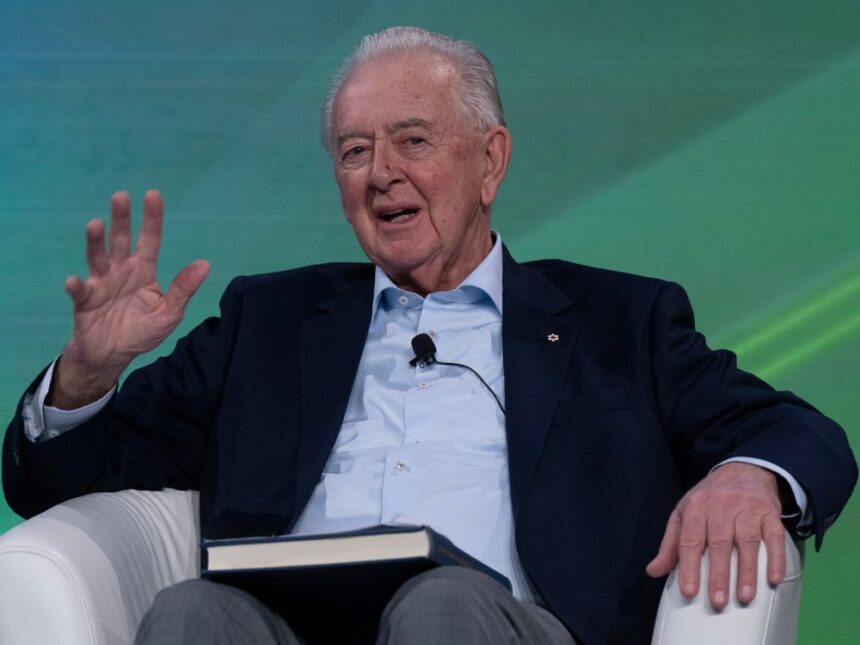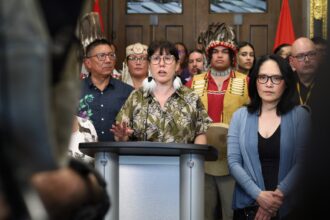In a bold move that signals renewed western discontent following the Liberal Party’s recent electoral victory, Preston Manning has announced plans to convene a Western Canadian Assembly. The former Reform Party leader’s initiative comes as frustrations simmer across Alberta, Saskatchewan, and parts of British Columbia over what many regional leaders describe as persistent federal neglect of western priorities.
“The federal system continues to disadvantage western provinces in ways that demand structural solutions, not just policy adjustments,” Manning stated during a press briefing in Calgary yesterday. The 81-year-old political veteran, who has long championed western interests, emphasized that the assembly would explore various options for securing “a more equitable place for western provinces within the Canadian federation.”
Manning’s announcement represents more than just traditional post-election grievances. It emerges amid escalating tensions over the federal carbon tax, resource development restrictions, and equalization payments—issues that have widened the divide between Ottawa and resource-dependent western economies. According to recent polling by the Angus Reid Institute, over 67% of Albertans believe their province’s interests are consistently overlooked in federal decision-making processes.
The proposed assembly would bring together elected officials, business leaders, and community representatives to evaluate options ranging from constitutional reforms to more dramatic measures. While Manning has carefully avoided explicit mentions of separation, his initiative provides an organized forum for western grievances at a time when sovereignty movements are gaining traction in Alberta.
Premier Danielle Smith’s office released a measured statement acknowledging Manning’s initiative while emphasizing Alberta’s commitment to pursuing “all available channels to secure fair treatment within Confederation.” Political analysts note this represents a careful balancing act for provincial leaders who must navigate between addressing constituents’ frustrations and maintaining effective federal relations.
Federal responses have been notably cautious. A spokesperson for the Prime Minister’s Office stated that “the government remains committed to working constructively with all provinces” but offered no specific commitments to address the concerns driving Manning’s initiative. This tepid reaction may only reinforce western perceptions of federal dismissiveness, according to Dr. Jared Wesley, political scientist at the University of Alberta.
“Manning’s timing is strategic,” explains Wesley. “Post-election disappointment provides fertile ground for reconsidering federal-provincial relationships, particularly when western provinces feel their electoral influence has once again failed to secure meaningful representation in Ottawa.”
Business leaders across the region have expressed mixed reactions. While energy sector executives have largely welcomed the initiative, others worry about potential economic uncertainty. “Any conversation about reforming federation is worthwhile, but stability remains crucial for investment,” noted Calgary Chamber of Commerce president Deborah Yedlin.
Manning’s Western Assembly initiative builds upon a lengthy history of western alienation movements, from the Progressive Party of the early 20th century to his own Reform Party in the 1990s. However, the current political landscape presents unique challenges and opportunities. With provincial governments increasingly assertive about jurisdiction and resource control, Manning’s assembly could catalyze more coordinated inter-provincial resistance to federal policies perceived as harmful to western interests.
As this initiative unfolds in the coming months, it raises a critical question for all Canadians: Can our federal system evolve to address regional grievances while maintaining national cohesion, or are we witnessing the early stages of a more fundamental realignment of Canadian federalism?


















